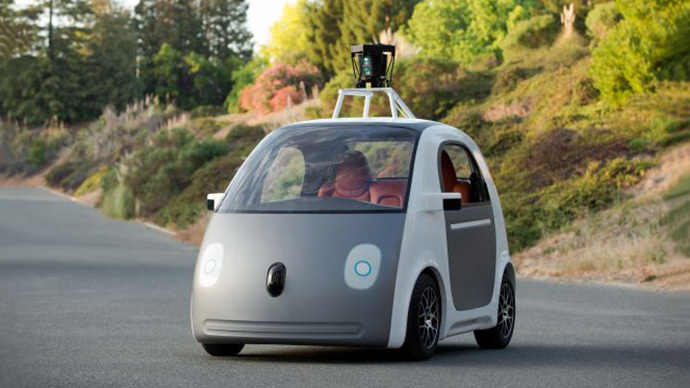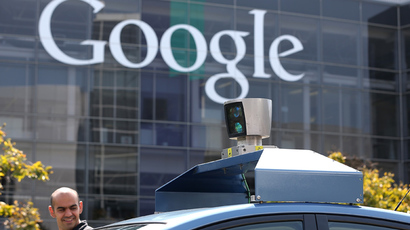Throw away your driving license: Google launches new self-driving car

Google is building a fleet of 100 electric driverless cars and hopes to start testing them by the end of the year. They may take a bit of getting used to, with no steering wheel or pedals, while they will temporarily have a top speed of 25mph.
This project has been several years in the making. Up until now, Google had refitted existing cars, mainly Lexus’s with radars, sensors, navigation equipment and cameras, as well as computers to make it drive by itself. However, during this period, they had secretly been working on their own prototype, which will have no controls that humans can use, except for an emergency stop button, as well as a start button.
This is the ultimate aim, but during the test stage, in order to comply with Californian law, the automated cars will have a wheel and pedals. This has certainly given the Californian Department of Motor Vehicles something to think about: they have to write the regulations for the ‘operational’ use of truly driverless cars.
The DMV had thought that the reality was several years away, so it would have time to perfect the rules. That clock just sped up, said the head of the DMV's driverless car program, Bernard Soriano. "Because of what is potentially out there soon, we need to make sure that the regulations are in place that would keep the public safe but would not impede progress," Soriano added.
Google’s co-founder, Sergey Brin, who has played a big part in the operation, started the project in 2009. The team has already managed to rack up hundreds of thousands of miles driving around California in regular cars, but now they want to go it alone.
“The main reason the team and I decided to build this prototype vehicle is that we can do a better job than we can do with an existing vehicle,” said Google’s co-founder. “The project is about changing the world for people who are not well-served by transportation today.”
It is unknown which manufacturer will be given the contract to build the 100 cars, but Brin thinks it will be some time yet before the cars appear, despite promising earlier that they would be on the roads by 2017.
One can forget about going for a spin off road, as the cars only work in built up areas. The automated vehicles operate by using data that has been accumulated, which is transferred into highly detailed maps. The car is also able to constantly scan the surrounding area.
The next stop on the road to a self-driving car http://t.co/gniIr42rmQpic.twitter.com/AkpLOpMWWB
— A Googler (@google) May 28, 2014
Chris Urmson, who is the director of Google's self-driving car project, said the aim was to run extended tests in California where the company is based. Urmson argued driverless cars would improve road safety, calling the development "an important step toward improving road safety and transforming mobility for millions of people."
Meanwhile, Brin says he is excited that the new prototype could have a massive effect on changing people’s lives for the better. "If you look at people who are too old, too young, or disabled, and can't get around, that's a big challenge for them," the co-Google founder added.
The vehicle has two seats, a screen displaying the route and a top speed of 25mph (40kmh). An array of sensors allows the vehicle's computer to determine its location and surroundings and it can ‘see’ ahead several hundred meters, according to Google.













